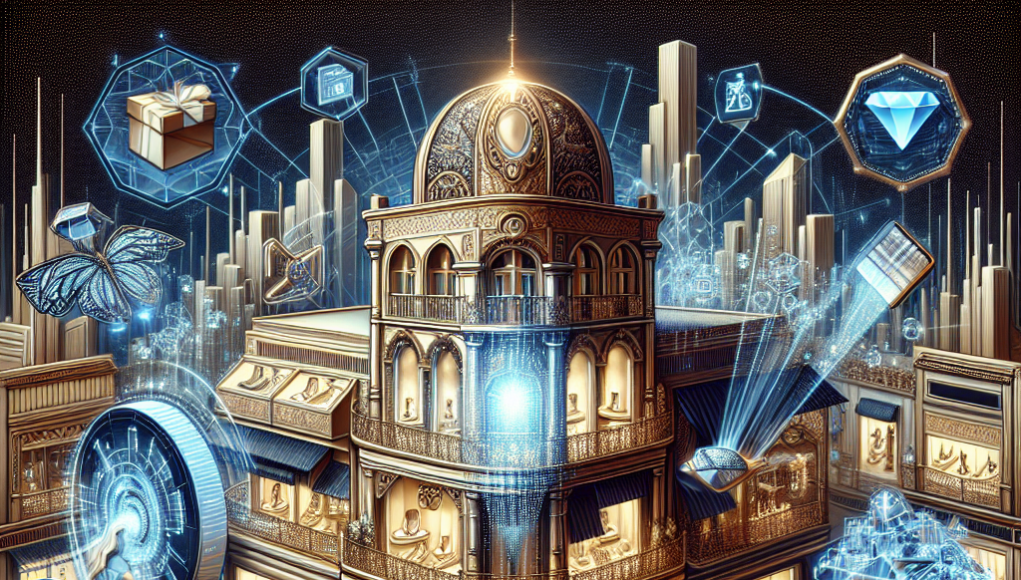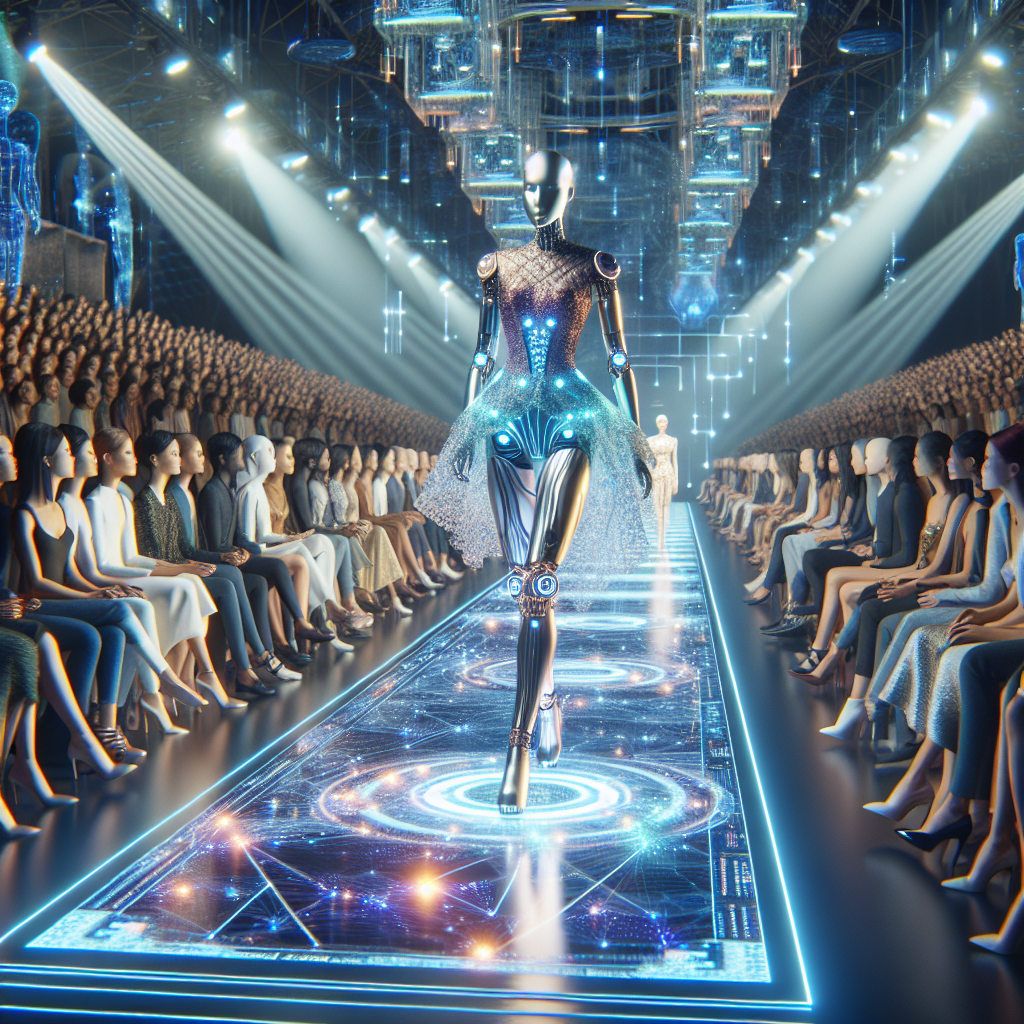The luxury market, long synonymous with exclusivity and timeless elegance, is undergoing a profound transformation driven by digital innovation. As consumer behavior shifts and technology advances, luxury brands are compelled to evolve and adapt. This article delves into the emerging digital trends that are reshaping the landscape of luxury markets. By understanding these trends, navigating through innovative digital spaces, and anticipating future tech-driven shifts, stakeholders in the luxury sector can stay ahead of the curve and continue to create unparalleled experiences for their discerning clientele.
Understanding the Rise of Digital Luxury Trends
The luxury market is experiencing a digital renaissance, characterized by the integration of cutting-edge technology to enhance customer experiences and brand engagement. One of the most significant trends is the rise of digital storytelling. Luxury brands are leveraging digital platforms to weave compelling narratives that resonate with their audience, offering immersive experiences that transcend traditional marketing. This shift is not just about selling a product but about building a brand ethos that captivates and engages.
Another trend gaining traction is the use of artificial intelligence (AI) to personalize customer interactions. AI-driven algorithms analyze consumer data to offer tailored recommendations, creating a bespoke shopping experience that mirrors the exclusivity of luxury. This personalized approach not only enhances customer satisfaction but also fosters brand loyalty, as consumers feel understood and valued.
Social media platforms have also become pivotal in the luxury market’s digital transformation. Platforms like Instagram and TikTok are not just channels for advertising but are spaces where luxury brands can connect with a younger, tech-savvy audience. By harnessing the power of social media influencers and user-generated content, luxury brands can amplify their reach and influence.
The integration of augmented reality (AR) and virtual reality (VR) in the luxury sector is another emerging trend. Brands are using AR and VR to offer virtual try-ons and immersive experiences that allow customers to interact with products in a digital space. This not only enhances the shopping experience but also provides a unique value proposition that sets luxury brands apart from their competitors.
Sustainability is also a driving force behind digital trends in luxury markets. Consumers are increasingly conscious of the environmental impact of their purchases, prompting luxury brands to adopt digital solutions that promote sustainability. From blockchain technology for transparent supply chains to digital fashion that reduces waste, the intersection of luxury and sustainability is shaping the future of the market.
Lastly, the rise of digital art and non-fungible tokens (NFTs) is impacting the luxury market. Luxury brands are exploring the potential of NFTs to create exclusive digital assets that appeal to collectors and aficionados. This trend not only opens up new revenue streams but also positions luxury brands as pioneers in the digital art space.
Navigating Innovations in High-End Digital Spaces
Navigating the evolving digital landscape requires luxury brands to embrace innovation while maintaining their core values of exclusivity and quality. One of the key innovations in high-end digital spaces is the development of virtual flagship stores. These digital storefronts offer an immersive brand experience, allowing customers to explore collections and interact with products in a virtual environment that mirrors the opulence of physical boutiques.
Another innovation is the use of advanced analytics to understand consumer behavior better. By analyzing data from various digital touchpoints, luxury brands can gain insights into customer preferences and trends, enabling them to tailor their strategies and offerings accordingly. This data-driven approach ensures that brands remain relevant and responsive to changing consumer demands.
The adoption of blockchain technology is revolutionizing the luxury market by enhancing transparency and authenticity. By providing a secure and immutable record of provenance, blockchain assures customers of the authenticity and ethical sourcing of luxury products. This innovation not only builds trust but also adds value to the brand’s reputation.
Luxury brands are also experimenting with digital craftsmanship, blending traditional artisanal techniques with modern technology. This fusion creates unique products that appeal to a tech-savvy audience while preserving the heritage and craftsmanship that are hallmarks of luxury. Digital craftsmanship allows brands to push the boundaries of creativity and innovation.
The integration of AI-powered virtual assistants in luxury retail is enhancing customer service and engagement. These virtual assistants provide personalized recommendations, answer queries, and offer styling advice, creating a seamless and interactive shopping experience. This innovation not only improves customer satisfaction but also streamlines operations, allowing brands to focus on delivering exceptional value.
Finally, the emergence of digital luxury communities is fostering a sense of belonging and exclusivity among consumers. These online platforms allow customers to engage with like-minded individuals and participate in exclusive events and experiences. By cultivating a digital community, luxury brands can strengthen customer loyalty and create a sense of connection that transcends traditional brand-consumer relationships.
The Future of Luxury: Tech-Driven Market Shifts
As we look to the future, the luxury market is poised for further transformation driven by technological advancements. One of the most anticipated shifts is the integration of artificial intelligence in product design and development. AI has the potential to revolutionize the creative process, enabling brands to predict consumer trends and create products that resonate with the evolving tastes of luxury consumers.
The rise of the metaverse presents exciting opportunities for luxury brands to redefine customer experiences. As virtual worlds become more sophisticated, luxury brands can create immersive environments where customers can explore and interact with digital fashion, art, and experiences. This tech-driven shift has the potential to blur the lines between physical and digital luxury.
Sustainability will continue to be a critical focus for luxury brands, with technology playing a pivotal role in achieving eco-friendly goals. Advances in digital technology can enable brands to develop sustainable materials, streamline supply chains, and reduce their carbon footprint. By prioritizing sustainability, luxury brands can appeal to environmentally conscious consumers and contribute to a more sustainable future.
The democratization of luxury through digital platforms is another trend that will shape the future. As online access expands, luxury brands will have the opportunity to reach a broader audience, making luxury more accessible while maintaining exclusivity through limited editions and personalized experiences. This shift challenges traditional notions of luxury and opens up new avenues for growth.
The evolution of digital identity and personalization will redefine the luxury market. As consumers increasingly seek unique and individualized experiences, luxury brands will need to leverage technology to deliver tailored offerings that reflect each customer’s identity and preferences. This focus on personalization will drive innovation and set new standards for the luxury experience.
Lastly, the future of luxury will be characterized by collaboration and cross-industry partnerships. As technology continues to evolve, luxury brands will benefit from collaborating with tech companies, artists, and innovators to create unique and groundbreaking products. These collaborations will not only enhance brand value but also position luxury brands as leaders in the tech-driven market landscape.
The luxury market is on the brink of a digital revolution, with emerging trends and technological innovations reshaping the way brands engage with consumers. By understanding and embracing these trends, luxury brands can navigate the complexities of the digital landscape and create experiences that resonate with modern consumers. As technology continues to drive market shifts, the future of luxury promises to be an exciting blend of tradition and innovation, offering endless possibilities for brands and consumers alike. The journey towards a tech-driven luxury market is just beginning, and the opportunities are boundless for those willing to explore this dynamic and evolving space.










